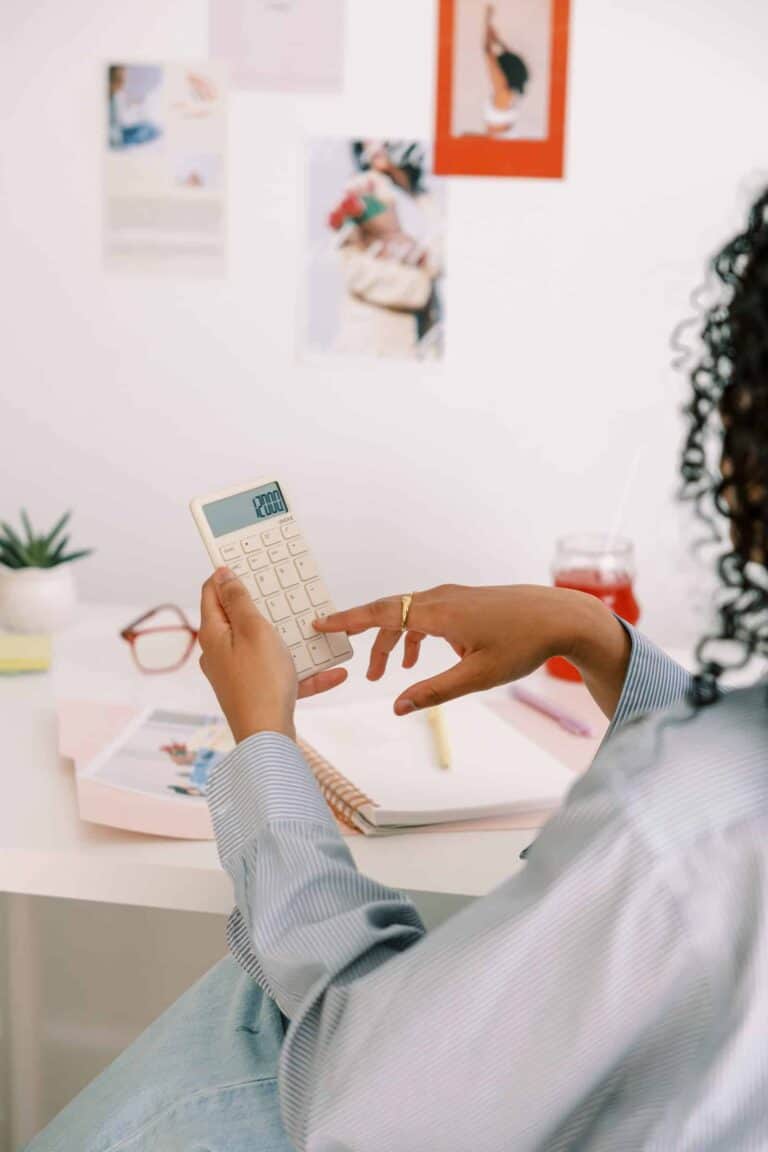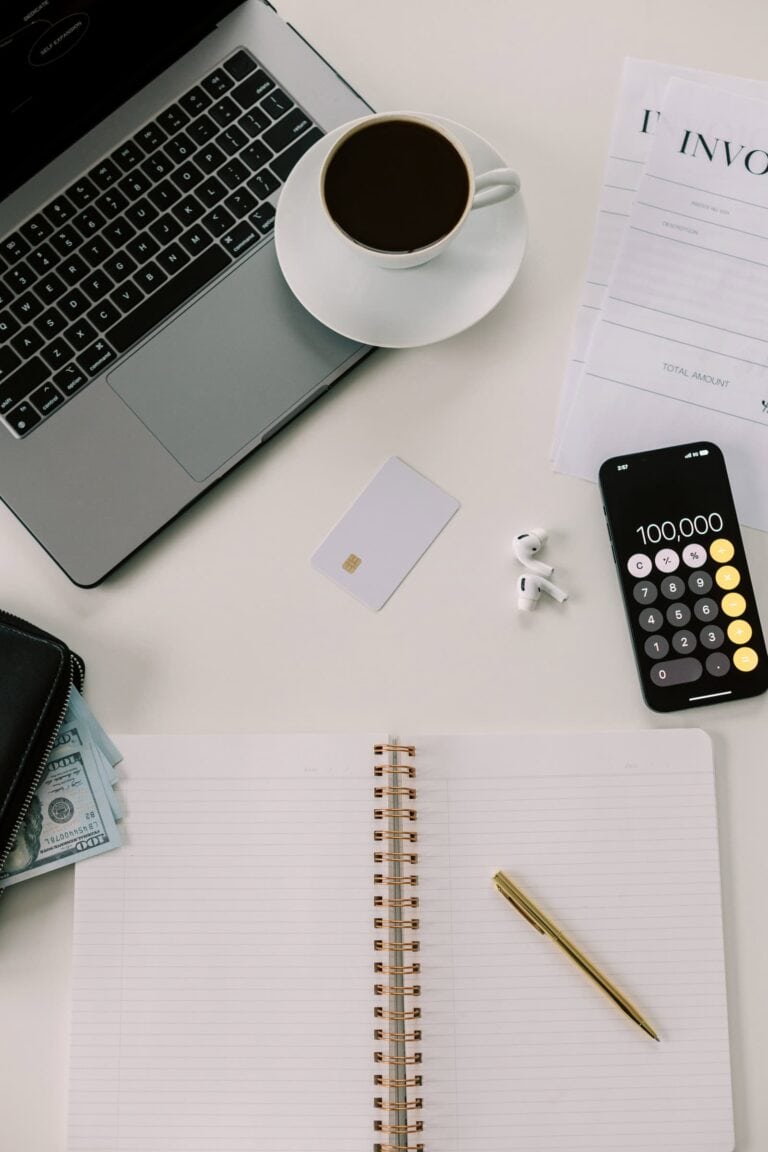Wondering how to get out of debt when you are broke? Learn how to get out of debt when you live paycheck to paycheck in this post!
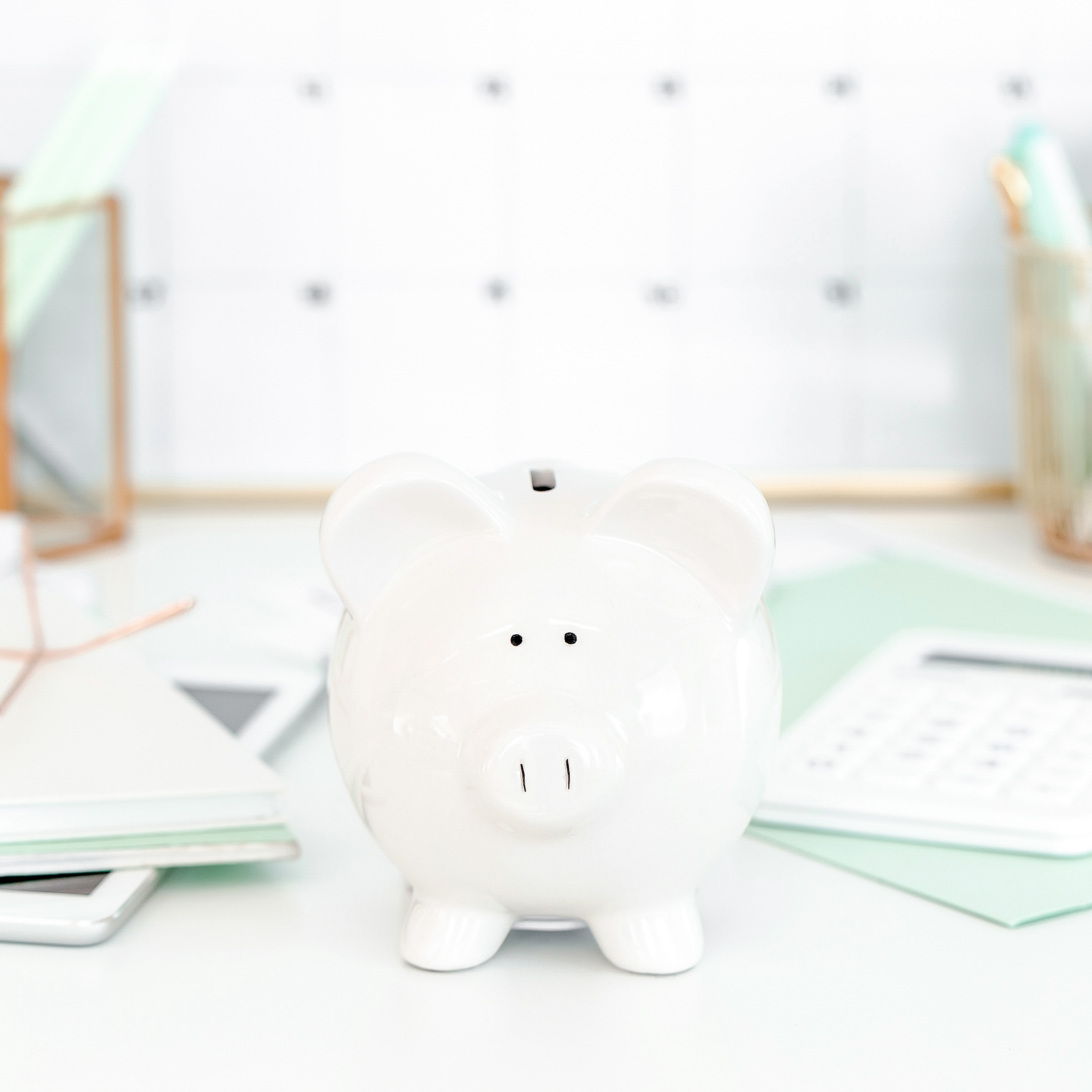
Are you up to your neck in debt? Maybe it's bad credit, a low income, living paycheck to paycheck and wondering how you'll ever pay off the Mount Everest of bills? Or maybe you don't even know how much debt you're in! But if you're here, you're ready for change (dare I say transformation)!
I know how heavy it feels. I’ve carried that same weight—and I promise you can put it down. I remember feeling so scared and ashamed of the absolute mess I had gotten myself into, to the tune of over $155,000 of consumer debt. I was filled with doubt and found myself feeling completely hopeless about how to move forward.
Instead of letting the fear, shame, guilt, and uncertainty keep me broke and drowning in payments, I got angry at my debt and made a decision to get the heck out of it.
Using the exact steps I'll outline for you in this post, I was able to pay off all of my debt in just 16 months. This step-by-step plan is a foolproof way for you to take back control of your finances and your life. Believe me, debt is no match for you! Below I'll share with you the exact roadmap to debt freedom.
This post is all about how to get out of debt when you are broke.
1. Get Angry at Your Debt
This first step might surprise you, but it is critical. You need to have your "I've had it!" moment if you haven't already. Take the time now to really get angry at your debt.
An easy way to do this is to sit down and write out everything your debt will cost you going forward. Think about the next year, the next 5 years, the next 10 years- what will keeping this debt deprive you of? How will you suffer in your roles as a wife, a son, a sister, an employee, a parent? How will this debt affect your romantic relationships? Your career choices? How will this debt harm you physically, spiritually, mentally, and financially? Really take the time to visit your bleak hypothetical future with this debt and really feel the pain of carrying it with you.
Now is the time to raise your standards and demand more of yourself than you have up to this point. Debt is quite literally keeping you from fulfilling your destiny and from living up to your full potential. The more disgusted you feel, the better!
Companies that sell debt products do a really good job of hiding the true pains of debt. For many of us, it's only after months or years of having debt do we realize what it is actually costing us.
You might feel like you're at rock bottom financially right now, and to that I say, congratulations! What an opportunity before you- to rebuild your life and to do it right this time, without debt.
Take action right now and write out EXACTLY what this debt is costing you!
Meet Sarah: A 28-year-old teacher living paycheck to paycheck, drowning in credit card debt and student loans. Using the exact steps you’re about to read, she cut her expenses, picked up a side hustle tutoring online, and paid off $18,400 in 14 months. Her turning point? Realizing that debt was keeping her from living the life she deserved.
2. Peel Back the Curtain
I don't even know how much debt I have. This is the first thing I said to myself when I decided to pay off all $155,000 of my debt. I had been avoiding finding out exactly how much I owed, knowing it was going to be a scary number. Best just not to think of it! Out of sight, out of mind right? Not quite.
If you are in debt, your body and your mind are always aware of it on an unconscious level.
The next step is for you to find out exactly how much debt you have. It's time to dust off those logins for your student loans, car loans, solar panels, etc and see exactly what you owe. If you don't know where to start, simply pull your free credit report that will include all your debts.
The known is always less scary than the unknown. Think of it like ripping off a Band-Aid—painful, but at least now you can see the wound. Finding out exactly how much you owe means that you can start to develop a game plan to pay it off. Take a long, hard look at that big, scary number- you're never going to see it again!
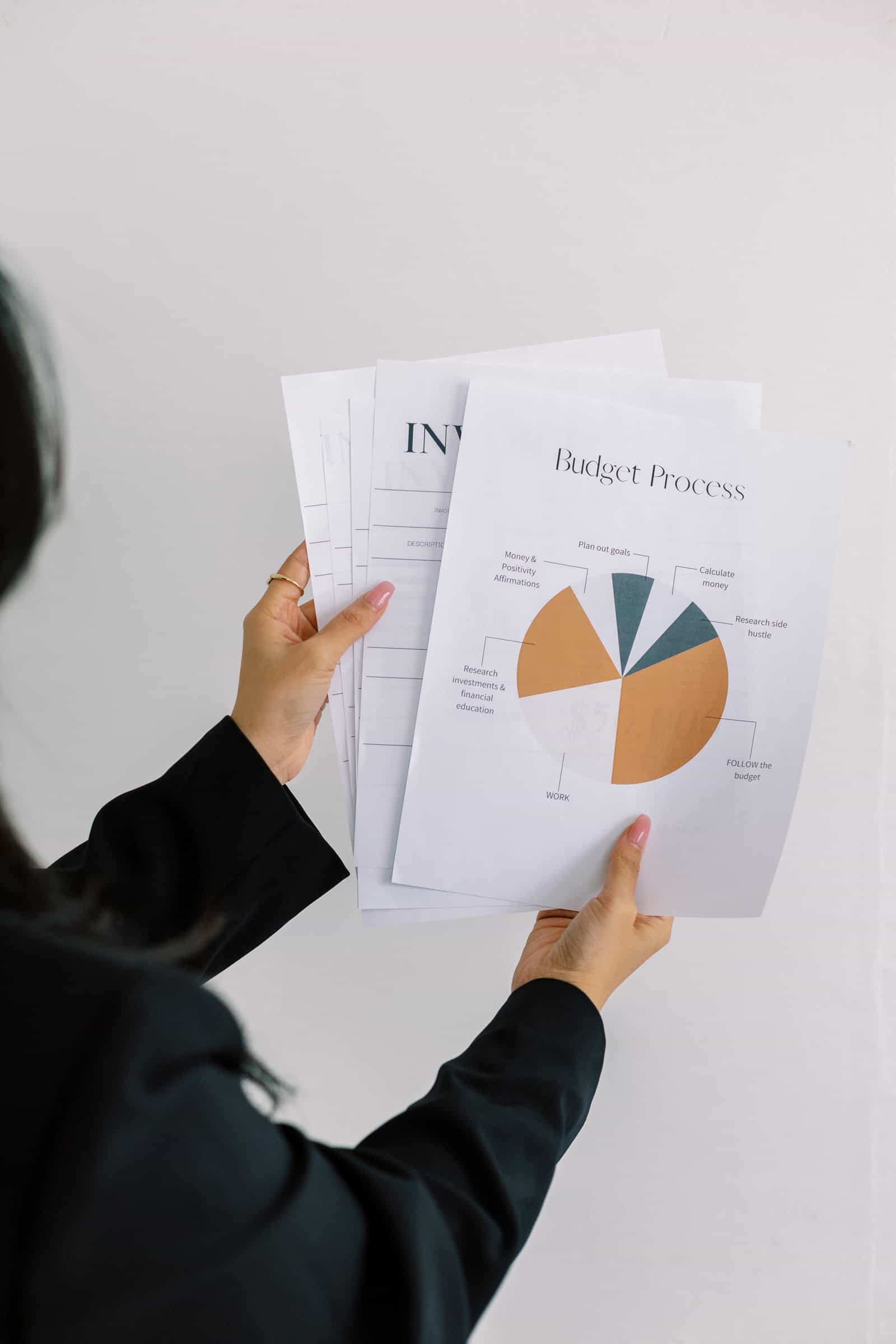
3. Snowballs > Snow Cones
Next, list your debt from smallest to largest. You can use a pen and paper, or like I did, can use Microsoft Excel or Google Sheets.
Now, your debt payoff plan is going to be using the "Snowball Method." It might surprise you that this is quite controversial! The snowball method involves paying off your smallest balance first, one by one, while you continue to make minimum payments on all your other debts. Each debt you knock out, you now roll the minimum payment into the next smallest bill, hence the snowball metaphor. The amount you can pay towards your debts will get larger and larger as each former minimum payment is used towards the next debt.
Well, that doesn't sound too controversial. Think again! Many argue against the debt snowball method because it means that you don't pay off the highest interest debt first, which is mathematically incorrect. However, study after study after study has shown that the debt snowball method ALWAYS trumps paying your highest interest balance first. This is credited to the psychological effects of the small victories of paying off your little debts. If you went to the gym every day for 3 months and saw no results, you'd quit! The same applies to your debt.
You need to see quick and early results to build momentum and keep your head in the game. Let’s be real: if math alone solved money problems, none of us would be here.
4. The Hash-Slinging Expense Slasher Strikes Again
How do you get out of debt quickly? Two words: A Budget. It's time to cut your expenses with an aggressive vengeance never before seen! First, you will need to create a budget listing all of your expenses. This will take a bit of time, and if you've combined finances with someone else, they'll need to get involved.
By far the easiest way to do this is with a budgeting app like YNAB, which is what I use. Claim your free trial here! However, an app is far from necessary as a good old (glitter) pen and paper will get the job done. It can be helpful to list expenses as "fixed" meaning they don't change month to month (think rent, insurance, subscriptions, etc) and "variable" meaning they fluctuate depending on the month (groceries, toiletries, gifts, etc).
Once you have a detailed list of ALL your monthly expenses, the real fun begins. It's time to cut cut cut.
First look at your fixed expenses, what can be eliminated? What can be reduced? My rule when I was paying off debt was that anything not essential for life was fair game (This is the one time extremism wins out).
Can you move somewhere cheaper? Get a roommate? Call up your car insurance and ask for a reduced rate if you've been a claim-free customer. Switching to cheaper insurance options is a one-time step that can save you hundreds, if not thousands of dollars.
Oh yea, those lovely hobbies we call Netflix, Hulu, and HBO... they've gotta go. Game of Thrones can wait until your debt is gone, right now it's time for Game of Loans.
Next look at your variable expenses and see what can be reduced or eliminated there. When I was paying off debt, I stopped wearing contacts and switched to glasses because it saved me $800 a year. I stopped getting my hair done and started cutting it at home myself (results may vary). The more you can slash from your expenses, the faster you are done.
This part can be, well, depressing AF. No vacations? No Starbucks? When will I ever feel joy again? The answer is soon! And once you're debt free, life is going to be much better than it is right now. You can spend whatever you want on these things after you're out of debt. And it will be even better because you will be able to spend more on the things you love without all those monthly payments.

5. Get Get Get Get That Paper
More fun still to come- it's time to increase your income! And let's say you're going to be willing to do this by ANY (ethical and legal) MEANS POSSIBLE. If you really want to know how to get out of debt when you are broke, this is probably the most important step of all.
First, do you have anything you can sell? Think big things first, like cars, boats, etc. If you have a second car, but you really only need one, consider selling it! Or, consider selling your car and getting a cheaper one. As a rule of thumb, the money you have tied up in vehicles should be no more than 50% of your annual income. Meaning that if you make $50,000 a year, you should have no more than $25,000 worth of cars.
I sold clothes, jewelry, even my furniture when I was getting out of debt. Looking back, it was more than worth it. Go through your house and see if there's anything you could offload and make a profit on.
To sell jewelry, clothes, shoes, and such, I used Poshmark. It was surprisingly simple and easy to list all my items, and selling them was a breeze. I've been using Poshmark for over 10 years and have never had an issue. Their app and website are really easy to use.
You can also simply take your items to a local consignment shop, but you'll get a lot less than you would if you sold the items yourself on one of the dozens of resale apps available online. Local marketplaces or even a garage sale can move items fast.
After you've sold so much that your pet fears they're next, it's time to increase your income by way of work. Dolly Parton's classic American hit "9 to 5" no longer applies to you, because you are going to be working 24/7.
There are several ways to do this that will depend on your circumstances. You might be a stay-at-home mom, in which case you'll need to look into earning money from home. When I was paying off debt, I used online surveys to make easy cash from home and on the go! Or it might be time to ask for a raise, a promotion, or look into getting a higher paying job. Next, look into overtime, extra shifts, and getting a second (or third, or fourth!) job. The goal is to be getting paid as much as you possibly can per hour.
Use this debt payoff calculator to see how much faster each additional hour of work will get you towards your ultimate goal of being debt free! This was super motivating to me when I realized just how fast I could pay off my debt.
6. No More Investing For You
A key part of any successful debt payoff plan involves pausing investing. Don't worry it's just temporary. This includes any 401k match offered by your company (cue dramatic gasp). But Arden, that's free money! And I'm making good returns on my investments! Say it isn't so!
I. Don't. Care. You are broke. It's hard to hear, but it's true. You cannot afford to be contributing to retirement right now. At this rate, there is no retirement for you! If you keep splitting focus, you'll still be making payments at retirement! In all likelihood, using my plan, you'll be able to be out of debt in less than 2 years. Pausing investing for such a short time will not kill any dreams of retirement or future savings.
If it feels awful to leave free money on the table because you are in debt, GOOD. It should feel awful! Being in debt is awful, and the more awful you feel, the harder you will work to pay it off. Any moves you make to feel better about being and staying in debt, including contributing to retirement, are counterproductive and will undermine your true goal of living a debt-free life.
Intense focus is needed in order to get out of debt. That means every ounce of energy AND ever dollar you can goes towards paying off your debt. Pausing isn’t forever—it’s a sprint move, not your whole marathon.
After you are out of debt, you'll be able to contribute A TON to retirement because you won't have any payments.
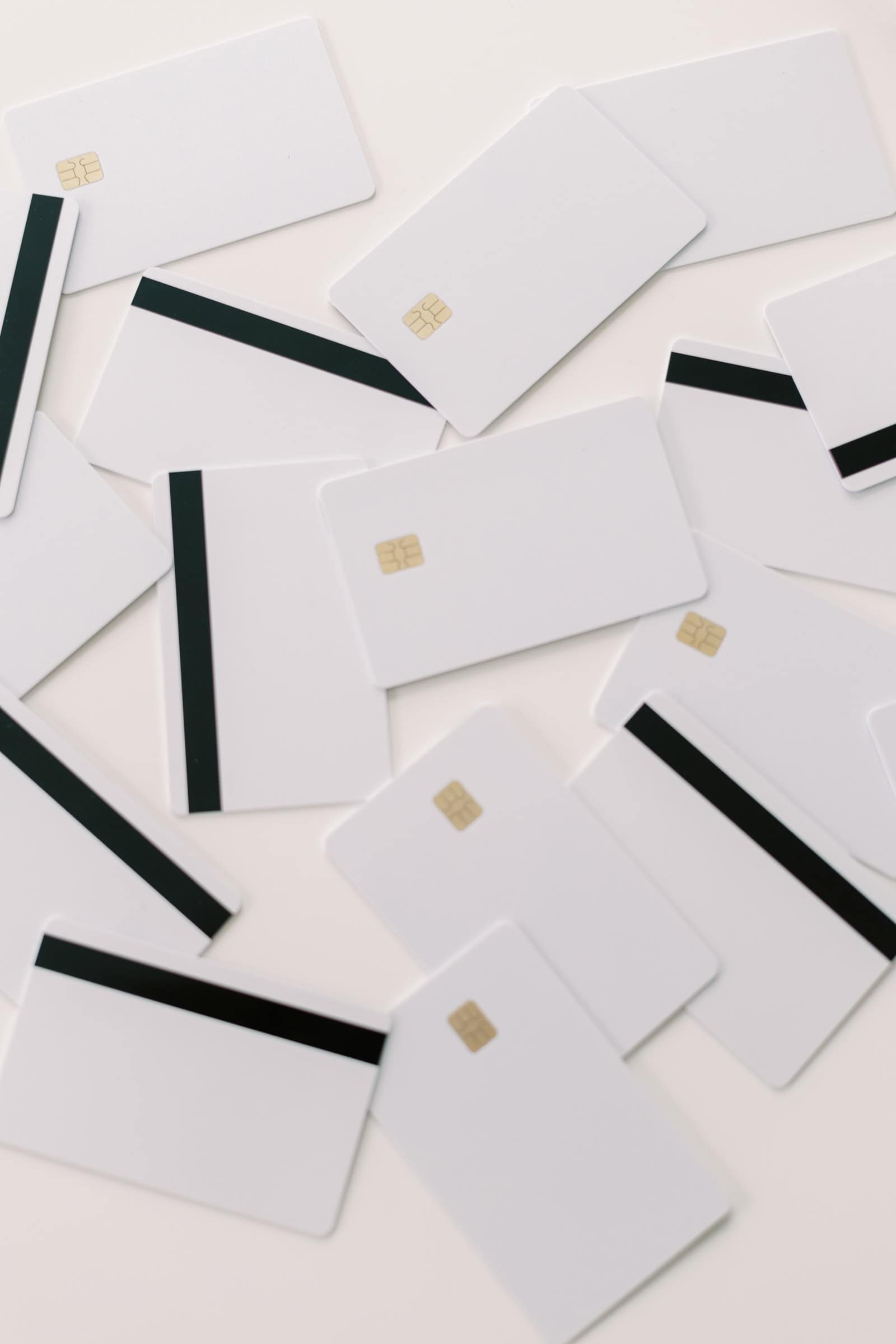
7. It's a Mental Game More Than a Money Game
Staying disciplined and committed to a goal like becoming debt free takes effort. Remember that the one reason you are in debt right now is that you believed that staying in debt was less painful than paying it off. I'm sure by now, you know that's just not true.
It is essential that you keep this mindset going forward, knowing with certainty that these short-term sacrifices are in no way more painful than the idea of remaining in debt for years (or decades) to come.
If you're feeling like giving up during this process, go back to the exercise you did in step #1 and review all the true costs of staying in debt. Remember why you started.
8. Last But Not Least- You Need a Vision
Finally, it's important to have a vision for your amazing goal of becoming debt free. I want you to take time to develop a clear picture in your mind of exactly where you're headed.
What is life going to look like once you pay off all this debt? How do you feel on a day-to-day basis? How do you feel at work and in your relationships? How do you feel physically? What are you going to spend your money on once you're done? A vacation? New clothes? The Twilight Saga DVD box set?
Reflect and create a crystal clear image in your mind of life after debt. A vision board is SO helpful with this- check out these free templates! You can use Pinterest, Canva, or cut-outs from magazines.
Post it on your fridge, mirror, or lock screen so you trip over it daily. This vision is your North Star—the reason you’re saying no now so you can say yes later. Having a vision will keep you focused and remind you what waits for you on the other side of debt.
9. Stay Inspired While You Perspire
Keeping motivated and focused is imperative as you work towards paying off balances. A great way to stay disciplined and focused while you're working long hours is to remain inspired. The thing that helped me the most was reading other people's debt-free journeys.
I read blogs, articles, and personal posts where people described how they got out of debt and the struggles they encountered along the way. I watched people celebrating their final debt payment —screaming, crying, dancing. Their joy became fuel for me. I found them so inspiring.
I created a Word document with all of the links to my favorite ones, and I would rewatch them often. I knew that if they could do it, I could do it too. Find podcasts, videos, or books that are aligned with your goals of becoming debt-free and try to incorporate them into your daily routine. Mentality is everything when it comes to paying off debt!
More about how to get out of debt...
FAQs about How to Pay Off Debt:
You start by getting brutally honest about where you are. List every debt, create a simple budget, cut expenses, and pick one small win to tackle first. Momentum beats perfection. Most people don’t get out of debt because they never actually start.
The debt snowball is the most effective method for 99% of people because it builds motivation through quick wins. Yes, the math nerds argue about interest rates, but humans need momentum—not spreadsheets—to stay consistent.
For most people, yes. Pausing investing for a short season allows you to direct every available dollar toward debt. It’s temporary, and you’ll be able to invest far more aggressively once you’re debt-free.
Create a vision for your life after debt, track your progress visually, and surround yourself with uplifting stories. Debt payoff is a mindset game just as much as a money game.
You can’t cut your way to freedom on a low income alone—you have to raise your income, even if temporarily. Side work, extra shifts, babysitting, tutoring, gig apps, selling items—every extra $20 matters. The goal isn’t to do this forever, just long enough to break free.
It depends on your income, expenses, and total debt, but most people can become debt-free in 12–36 months using focused intensity. With a plan, a budget, and consistency, it happens faster than you think.




